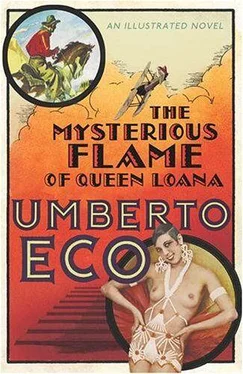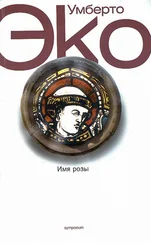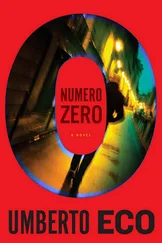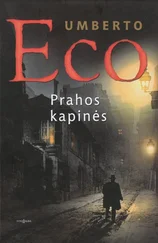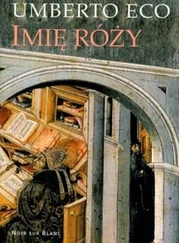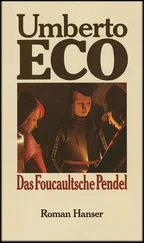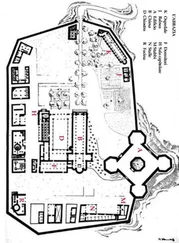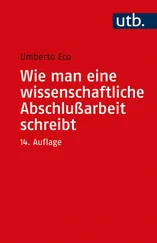Umberto Eco - The Mysterious Flame Of Queen Loana
Здесь есть возможность читать онлайн «Umberto Eco - The Mysterious Flame Of Queen Loana» весь текст электронной книги совершенно бесплатно (целиком полную версию без сокращений). В некоторых случаях можно слушать аудио, скачать через торрент в формате fb2 и присутствует краткое содержание. Жанр: Исторический детектив, на французском языке. Описание произведения, (предисловие) а так же отзывы посетителей доступны на портале библиотеки ЛибКат.
- Название:The Mysterious Flame Of Queen Loana
- Автор:
- Жанр:
- Год:неизвестен
- ISBN:нет данных
- Рейтинг книги:3 / 5. Голосов: 1
-
Избранное:Добавить в избранное
- Отзывы:
-
Ваша оценка:
- 60
- 1
- 2
- 3
- 4
- 5
The Mysterious Flame Of Queen Loana: краткое содержание, описание и аннотация
Предлагаем к чтению аннотацию, описание, краткое содержание или предисловие (зависит от того, что написал сам автор книги «The Mysterious Flame Of Queen Loana»). Если вы не нашли необходимую информацию о книге — напишите в комментариях, мы постараемся отыскать её.
The Mysterious Flame Of Queen Loana — читать онлайн бесплатно полную книгу (весь текст) целиком
Ниже представлен текст книги, разбитый по страницам. Система сохранения места последней прочитанной страницы, позволяет с удобством читать онлайн бесплатно книгу «The Mysterious Flame Of Queen Loana», без необходимости каждый раз заново искать на чём Вы остановились. Поставьте закладку, и сможете в любой момент перейти на страницу, на которой закончили чтение.
Интервал:
Закладка:
The sunset hour was fast approaching, and Amalia was already calling up in a loud voice to announce that her mouthwatering finanziera -that rustic Piedmontese concoction of calf brains and sweetbreads, giblets and wattles and cockscombs-was almost ready. The first vague shadows, gathering in the hidden corners of the attic, seemed to portend some lurking Fantômas, awaiting my collapse so he could pounce on me, bind me with a hempen rope, and dangle me in the abyss of a bottomless well. Mainly in order to prove to myself that I was no longer the child that I would have liked to become again, I fearlessly lingered to peer into those unlit areas. Then I was assailed once more by an ancient mustiness.
Near one of the dormer windows that was letting in the last rays of late afternoon, I dragged out a large crate, its lid carefully protected with brown wrapping paper. In removing that dusty covering, I disturbed two layers of moss, real moss, though now desiccated- enough penicillin to send everyone in The Magic Mountain’s sanatorium home in a week, and good-bye to those wonderful conversations between Naphta and Settembrini. Each tuft was like a clump of sod, and putting them all together you could have made a field as large as my grandfather’s desk. Who knows by what miracle- maybe the layer of paper had created a humid zone beneath it, thanks to all those winters, those days when the attic roof was pounded with rain, snow, or hail-but the moss had retained something of its pungent stench.
Beneath the moss, packed in curly wood shavings, which I plucked out carefully so as not to damage the contents, were a hut made of wood or cardboard covered with colored plaster, with a roof of compressed straw, a windmill of straw and wood with a wheel that still turned, though barely, and a number of little painted-cardboard houses and castles, which placed on some hill must have served as background scenery for the hut, lending perspective. And finally, deep in the shavings, I found the statuettes: the shepherds with the baby lamb in tow, the knife grinder, the miller with his two little donkeys, the peasant woman with a fruit basket on her head, a pair of pipers, an Arab with two camels, and-here they are-the Wise Men, they too smelling more like mold than incense or myrrh. Then at last the donkey, the ox, Joseph, Mary, the cradle, the Baby Jesus, two angels, arms flung wide, stiffened with a glory that had lasted at least a century, the golden comet, a rolled-up blue cloth that was stitched with stars, a metal basin filled with cement so as to form the bed of a creek, with two holes through which the water came and went, and something that made me put off dinner for half an hour while I studied it: a strange contraption consisting of a glass cylinder out of which came long rubber tubes.
A complete Nativity scene. I had no idea whether my grandfather or my parents had been believers (my mother must have been, given the Filotea on her nightstand), but clearly someone used to exhume this crate as Christmas approached in order to set up the crèche in one of the downstairs rooms. And yet those little statues were calling to mind not more words, but an image, something I had not seen in the attic but that must have been around somewhere, so vivid did it seem to me in that moment.
What had the Nativity scene meant to me? Between Jesus and Fantômas, between Rocambole and The Basket , between the mold on the Wise Men and that on the impaled corpses in the pages of the Illustrated Journal of Voyages and Adventure , where did I stand?
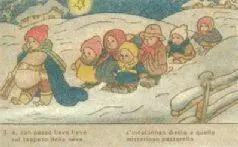
I realized that those days in the attic had been badly spent: I had reread pages I had first encountered at the age of six or twelve or fifteen, falling under the spells of different books at different times. That is no way to reconstruct a memory. Memory amalgamates, revises, and reshapes, no doubt, but it rarely confuses chronological distances. A person should know perfectly well whether something happened to him at seven years of age or at ten. Even I could now distinguish the day I woke up in the hospital from the day I departed for Solara, and I knew perfectly well that between one and the other some maturation had taken place, a change in my thinking, a weighing of experiences. And yet in the past three weeks I had taken everything in as if as a boy I had swallowed it down all at once, in one gulp-no surprise that I felt dazed as if by some intoxicating brew.
So I had to give up that grande bouffe of old papers, put things back in their places, and savor them over the course of time. Who could tell me what I had read or seen when I was eight as opposed to thirteen? I thought awhile and understood: my old school-books and notebooks simply had to be somewhere among all those containers. Those were the documents to track down: I had only to listen to their lesson, letting them lead me by the hand.
At dinner, I asked Amalia about the Nativity scene. Indeed it had been my grandfather’s, and had meant a lot to him. He was not a churchgoer, but the Nativity scene was like royal soup: it was not Christmas without it, and even if he had had no grandchildren he might have set it up just for himself. He began working on it in early December, and if I looked around the attic I would find all the framework, which had supported the sky backdrop and contained lots of little bulbs in the front part that made the stars twinkle. "A thing of beauty it was, your dear grandfather’s Nativity scene, made me cry every year. And water truly flowed in the river, why in fact one year it overflowed and got the moss wet that had come in fresh that very year, and then the moss all bloomed with itty-bitty blue flowers, which it was truly a miracle of the Christ child, and even the parish priest came who couldn’t believe his eyes."
"But how did he make the water flow?"
Amalia blushed and mumbled something, then made up her mind: "In that Nativity scene crate, which every year I helped to put it all away after Epiphany, there ought to be something, like a big bottle with no neck. You saw it? Well, I don’t know if folks still use them things or not, but it was a contraption, pardon my French, for giving enemas. Do you know what enemas are? Good, then I don’t have to explain, which that would embarrass me. And so your dear grandfather got the bright idea that if he put that enema contraption underneath the Nativity scene, and hooked up the tubes in the right places, the water would come up and then go back down again. That was something, I can tell you, forget the picture shows."
8. When the Radio
____________________
After my eight days in the attic, I decided to go into town to get my blood pressure checked by the pharmacist. Too high: 170. Gratarolo had released me from the hospital with orders to keep it in the 130s, and 130 it was when I left for Solara. The pharmacist said that if I measured it after walking all the way down the hill to town, of course it would be high. If I checked it in the morning when I woke up, it would be lower. Nonsense. I knew what it had been, and for days I had lived like a man possessed.
I called Gratarolo, and he asked if I had done anything I should not have, and I had to admit that I had been moving crates, drinking at least a bottle of wine per meal, smoking a pack of Gitanes a day, and causing myself frequent bouts of mild tachycardia. He reproached me: I was convalescing, if my pressure went through the roof I could have another incident, and I might not be as lucky as I was the first time. I promised him I would take care of myself, and he raised the dosage of my pills and added others to help me get rid of salt through my urine.
Читать дальшеИнтервал:
Закладка:
Похожие книги на «The Mysterious Flame Of Queen Loana»
Представляем Вашему вниманию похожие книги на «The Mysterious Flame Of Queen Loana» списком для выбора. Мы отобрали схожую по названию и смыслу литературу в надежде предоставить читателям больше вариантов отыскать новые, интересные, ещё непрочитанные произведения.
Обсуждение, отзывы о книге «The Mysterious Flame Of Queen Loana» и просто собственные мнения читателей. Оставьте ваши комментарии, напишите, что Вы думаете о произведении, его смысле или главных героях. Укажите что конкретно понравилось, а что нет, и почему Вы так считаете.
